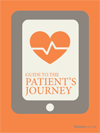
At every step of the patient's journey editors examine and present how eHealth, whether it is delivered through IT or telemedicine, can make the journey less burdensome for and at the same time empower the patients.
But before you embark on the journey, you are invited to browse through Section 1 and discover or re-discover basic facts about the challenges to be addressed. At the end of the section we will find a survey presenting care managers' views. They believe they will be able to deliver a better, more tailored service through telemedicine. And a cheaper one too.
In Section 2, you will find patients', professionals' and professors' perspectives on how health care can be modelled around patients' needs. Denmark is one of three European countries where the foundation of a new health care system based on networked eHealth has been established.
But if this magnificent journey is to become standard procedure in health care, it takes much more than the technologies themselves. In Section 3 you will see examples and how-to-do guides for addressing challenges on the way from an institutionalised health care to a system built around the needs of a single citizen. If the new system is a success, the results will be intriguing.
Download Guide to the Patient's Journey (.pdf, 4.703 KB).
Download from eHealthNews.eu Portal's mirror: Guide to the Patient's Journey (.pdf, 4.703 KB).